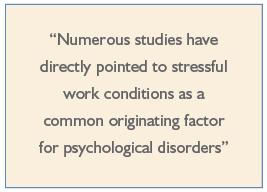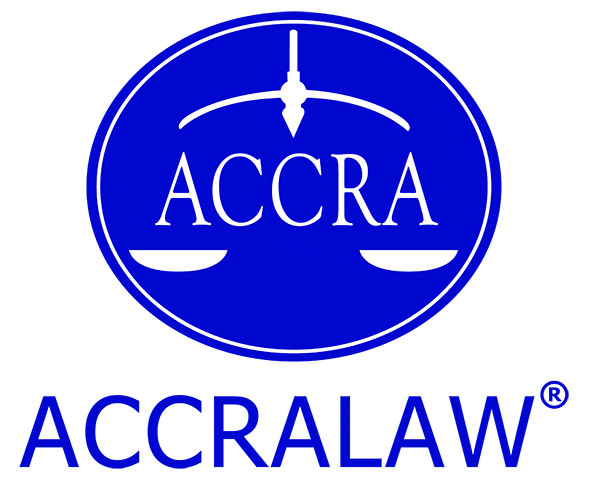 By Diego Luis S Santiago, ACCRA Law
By Diego Luis S Santiago, ACCRA Law
Email: dssantiago@accralaw.com
The problem of mental health presents a particular conundrum under labour relations and standards. Employers and employees alike walk a very thin line between recognising that psychological disorders are a real problem and therefore must be treated accordingly, and safeguarding against abuse and misreading of symptoms. It does not help that, unlike physical disabilities which can be verified easily through a mere eye test, psychological disorders by their very nature vary greatly from person to person, in terms of the originating cause, the degree, the time period or even the actual existence thereof. As a result, a valid diagnosis can be very difficult, if not impossible.
Philippine statutes themselves seem reluctant to expressly categorise psychological disorders as legal disabilities, the latter enjoying special protection under law. Republic Act No. 7277, the Magna Carta for Persons With Disabilities (PWDs), defines a “disability” as a limiting impairment that is either recognised or recorded, while a “disabled person” is one who suffers from restriction or different abilities, as a result of a mental, physical or sensory impairment, to perform an activity in the manner or within the range considered normal for a human being.
While one can make the argument that a psychological disorder may be included, in actual practice this is not the case. The reason is because there is a complete absence of any standards that would dictate what is considered recognisable or normal for other human beings. Thus, each allegation of a disorder that would entitle a person to legal benefits is inconsistently treated on a case-by-case basis, which is also observable from the Supreme Court decisions on the matter.
Notably, psychological disorders are not included in the Employee’s Compensation Commission’s Table of Occupational Diseases. The only mention of anything remotely connected to mental issues is found in the case of cerebro-vascular accidents, wherein, there “must be a history, which should be proved, of trauma at work (to the head specially) due to unusual and extraordinary physical or mental strain”. Neither is there any mention of mental impairments in the enumeration of total and permanent disabilities, aside from “brain injury resulting in incurable imbecility or insanity”. Psychosocial disorders are neither incurable nor considered imbecility or insanity, and therefore are not considered as belonging to this specification.
 With the possibility of abuse always looming, it is thus unsurprising that there is cynicism and scepticism around the issue of psychological disorders. However, questions about mental health cannot be merely brushed aside due to the difficulty in pinpointing their existence. Numerous studies have directly pointed to stressful work conditions as a common originating factor for psychological disorders, and that these disorders inflict substantial burdens leading to loss of self-esteem and less effective work performance. Not only a person’s work situation can be left debilitated by a psychological disorder, but even the quality of his or her life in general.
With the possibility of abuse always looming, it is thus unsurprising that there is cynicism and scepticism around the issue of psychological disorders. However, questions about mental health cannot be merely brushed aside due to the difficulty in pinpointing their existence. Numerous studies have directly pointed to stressful work conditions as a common originating factor for psychological disorders, and that these disorders inflict substantial burdens leading to loss of self-esteem and less effective work performance. Not only a person’s work situation can be left debilitated by a psychological disorder, but even the quality of his or her life in general.
This dire problem is exacerbated by the fact that the Philippines has no mental health legislation at present, though there have been recent efforts. Senator Sonny Angara, in his co-sponsorship speech of the proposed Mental Health Act of 2017, stressed that the government should heed the staggering numbers that comprise the country’s mental health problem. He pointed out that surveys from the Department of Health showed that almost one out of every one hundred households had a member with a mental disorder, and that almost one-in-three employees from Metro Manila government agencies had experienced a mental health problem or breakdown at least once in their lifetime, including specific phobias, alcohol abuse and depression. Another lawmaker, Senator Grace Poe, likewise made the observation that chronic overworking, as various research suggested, could lead to threatening levels of stress.
Our dilemma therefore is no longer whether or not it is high time to legislate in favour of broadening the scope of disability definitions, but how we should do so. Whether this is through amending the definition under the PWD act, or setting new classifications and policies through the enactment of a specific mental health bill, shedding clarity on the vagueness and place of psychological disorders in disability statutes will go a long way in answering the myriad questions that have and will continue to spring up.
(Note: This article first appeared in Business World, a newspaper of general circulation in the Philippines)

http//: www.accralaw.com
Email: dssantiago@accralaw.com
Tel: (632) 830-8000
Fax: (632) 4037007 or (632) 4037008


